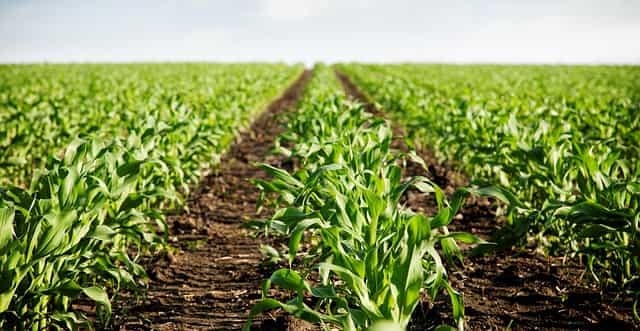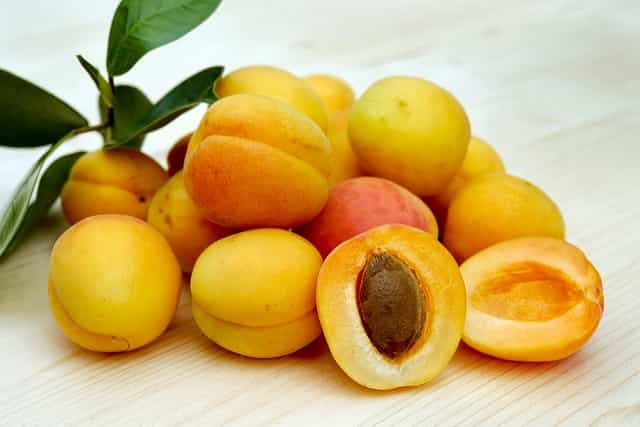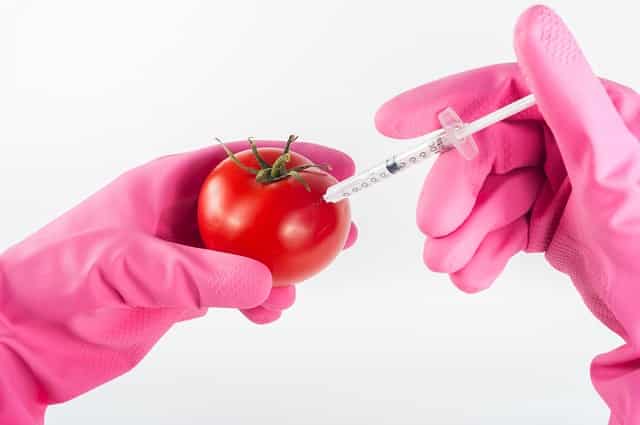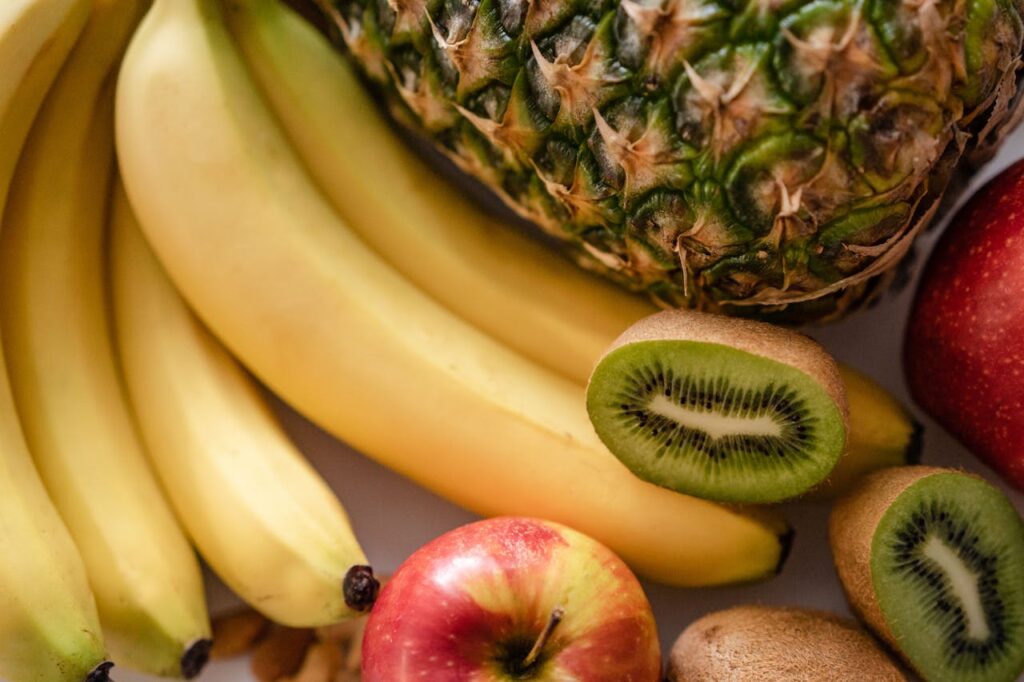In recent years, the debate surrounding genetically modified organisms (GMOs) has intensified, with concerns about health, environmental impact, and ethical considerations. As the discussion goes on, a growing number of people are looking to organic farming as a workable solution to GMO issues.
Consumers, farmers, and policymakers are at odds over the right course of action as the controversy about genetically modified organisms in the food we eat has escalated in the past few years. Amid all of this discussion, organic farming has been steadily gaining momentum as a way to address GMO issues.
Proponents contend that we can solve a number of the issues brought up by GMO farming by going back to agricultural methods that depend on natural inputs and processes.
This post explores how organic farming provides a sustainable, health-conscious, and ethical alternative to GMOs.
Understanding GMO and Their Issues
What are GMOs?
Genetically modified organisms (GMOs) are animals, plants, or microorganisms whose genetic material has been altered in a way that does not happen naturally through mating or natural recombination (1). This technology seeks to improve certain traits, such as pest resistance, herbicide tolerance, and increased yield.
An Overview of the GMO Issue Debate
The debate around genetically modified organisms (GMOs) has its origins in the developments in biotechnology, which allow scientists to modify the DNA of animals and plants to achieve desired qualities.
Some people are endorsing these GMOs for their potential to boost agricultural productivity, promising reduced use of pesticides and herbicides, increased yields, and greater resistance to diseases and pests. Conversely, the story around GMOs is rife with doubts and worries.
Again, the absence of thorough, long-term health research on the intake of GMOs, along with the possibility of unanticipated environmental effects, are cited by critics. The argument is further fueled by concerns about the moral implications of modifying genetic material as well as the threat of biodiversity loss.
Alarms have also been raised about food sovereignty as well as the disenfranchisement of small-scale farmers due to the monopoly of GMO technologies by a few strong businesses. The conflict stems from a larger issue regarding the way society views food production alongside the importance it places on environmental sustainability, economic justice, and health.
The current debate makes clear a critical necessity for robust scientific study and informed conversation to sort through the intricacies of genetically modified organisms (GMOs) and their role in the food we consume.
Common Issues with GMOs
1. Health concerns
- Antibiotic Resistance: Some GMOs are engineered with antibiotic resistance genes, raising concerns about the potential effect on human health.
- Potential Allergens: There is a concern that GMOs may introduce new allergens or increase levels of existing ones.
2. Environmental impact
- Pesticide resistance: Over-reliance on GMO crops has led to the emergence of “superweeds” and “superbugs” resistant to conventional pesticides.
- Biodiversity loss: GMOs can crossbreed with wild relatives, potentially leading to a loss of biodiversity.
3. Socioeconomic and ethical issues
- Market domination: A few big companies dominate the GMO industry, which can lead to monopolistic practices and reduced farmer autonomy.
- Patent and ownership: GMO seeds are usually patented, which can create dependency for farmers and impact seed sovereignty.
Organic Farming: A Sustainable solution
Principles of Organic Farming
Organic farming emphasizes the application of natural inputs and processes. It focuses on maintaining ecological balance, promoting soil fertility, and promoting biodiversity without depending on synthetic chemicals or GMOs.
The tenets of organic farming center on accepting the diversity and cycles of nature as essential to food production. In contrast to conventional farming practices, which frequently use genetically modified seeds intended for particular features, organic farming uses naturally occurring breeds and seeds.
Since these seeds are non-GMO, the produce that is grown will not be subjected to the same direct manipulations as their variants that have undergone genetic modification.

Organic farming can solve the GMO issue
Key Practices in Organic Farming
1. Crop Rotation and Diversity
Through crop rotation, organic compost, and green manure, organic agriculture aims to maintain soil fertility. The GMO reliance on artificial pesticides and fertilizers, which over time can erode soil health, contrasts dramatically with this soil-nurturing practice.
By eschewing these synthetic inputs, organic methods protect water quality, contribute to the preservation of the ecological balance, and reduce the danger of health hazards connected with pesticide accumulation.
2. Natural pest management
When it comes to pest management, organic farming favors mechanical and biological techniques over chemical ones. It uses barrier techniques, human pest eradication, and beneficial insects to create an ecosystem in balance, which naturally lowers the frequency of pest outbreaks.
3. Soil fertility
Organic farming applies composting, green manure, and organic fertilizers to maintain soil nutrients. Again, it employs practices of no-till or reduced-till farming to preserve soil structure and microbial activity.
4. Non-GMO Seeds
Organic farming employs traditional and heirloom seeds, preserving genetic diversity. It also supports seed sovereignty and reduces dependence on patented seeds.
These practices support the larger objectives of organic farming, which are to develop an agricultural system that is in balance with the environment.
By emphasizing these natural inputs and processes, organic farming offers a strong substitute for the problems caused by GMOs. Instead of depending solely on genetic modification as a magic bullet, organic farming emphasizes the possibility for agriculture and the environment to coexist in a mutually beneficial partnership.
Using Organic Farming Practices to Solve GMO Issues
Organic farming methods are the most advanced in tackling the complex problems caused by the increase of genetically modified organisms. Its all-encompassing strategy promotes biodiversity, which is a vital contrast to the monocultures that are frequently connected to genetically modified crops.
By breaking up the life cycle of pests, diversifying crop life not only increases the ecosystem’s resilience but also lessens the need for chemical pesticides—a staple of genetically modified agriculture. By improving ecological balance, this technique helps prevent the spread of diseases and pests that become resistant to biotech treatments.

Apricot fruits
Furthermore, in stark contrast to the deterioration seen in fields filled with GMO crops dependent on significant chemical inputs, organic practices emphasize the restoration of soil health.
Organic farming regenerates the soil by adding techniques like crop rotation, the application of natural compost, and green manure, which enhance the soil’s nutrient composition and help it retain water. This helps plants grow healthily without the use of artificial fertilizers.
It also helps sequester carbon, which provides a natural solution to climate change.
In addition, the use of mechanical weed control and beneficial insect introduction are two examples of non-chemical methods of pest control that offer viable substitutes for the environmental risks associated with genetically modified organisms.
These organic farming methods demonstrate a dedication to fostering an agricultural environment where natural methods are utilized to address contemporary farming issues, opening the door for a time when nature and agriculture can coexist together.
Benefits of Organic Farming
1. Healthier produce
- Organic crops usually contain higher levels of certain nutrients, such as antioxidants.
- Absence of synthetic pesticides and GMOs reduces the risk of exposure to harmful chemicals.
2. Social and economic benefits
- Encourages fair trade and equitable food systems.
- Supports local economies and small-scale farmers.
3. Environmental sustainability
- Reduces pollution and conserves water through sustainable farming practices.
- Enhances biodiversity and soil health, leading to more resilient ecosystems.
Challenges and Solutions in Organic Farming
Challenges
1. Lower yields
- Organic farms often result into lower yields compared to conventional GMO farms.
- This can be a barrier to feeding a growing global population.
2. Increased costs
- Organic farming can be more labor-intensive and costly because of the need for manual labor and organic inputs.
- Organic products usually have higher market prices, potentially limiting access for some consumers.
Innovative solutions
1. Technological advancements
- Innovations in organic farming technology, such as precision agriculture and organic biofertilizers, can enhance efficiency and yields.
- Development of drought-resistant and high-yield organic seed varieties through traditional breeding techniques.
2. Agroecology
- Promotes practices such as agroforestry, cover cropping, and integrated pest management.
- Integrates traditional farming knowledge with modern ecological science to improve productivity and sustainability.
3. Policy support
- Policies promoting organic certification and consumer awareness can boost demand and market growth.
- Governments can support organic farming through subsidies, research funding, and market incentives.
The Social and Economic Consequences of GMO vs. Organic Farming
Comparing GMO and organic farming has important social and economic ramifications in addition to environmental ones. Making the switch to organic farming can boost regional economies by requiring more labor-intensive techniques, which will strengthen rural communities’ fabric and create jobs.
Moreover, farmers may receive a larger return on their investment in organic operations because organic products often command a premium price in the market.
Farmers are highly motivated to achieve organic certification due to the financial benefit, even with the initial expenses and difficulties involved in moving away from conventional, genetically modified agricultural practices.
The state of the economy is complex, though. Without outside assistance, such as grants, education, and access to organic markets, small-scale farmers would find the switch to organic farming to be financially unfeasible.
This emphasizes the necessity of focused policies that encourage this important farmer group to switch to organic farming methods, guaranteeing that the advantages of organic farming can be shared more fairly.
Socially, the shift to organic farming could strengthen food sovereignty by giving communities more authority over their food networks. Crop diversification, which can help create a more self-sufficient and resilient food supply and lessen reliance on the bigwigs that control the GMO industry, is encouraged by organic agriculture.
This change supports social justice and is consistent with a larger trend toward just and sustainable food systems.
Consumer Impact: The Significance of Selecting Organic
In the debate between GMOs and organic foods, the importance of consumer preference cannot be overemphasized. Each purchase undertaken at a restaurant or grocery store has the power to direct the pursuits of food producers, impact market trends, and change agricultural practices.
Growing consumer preference for organic products communicates to the agriculture industry that there is a growing market for food produced without chemical or genetic alteration. Demand from consumers serves as a potent trigger, encouraging more farmers to think about switching to organic farming practices.
This might, therefore, result in a rise in the number of organic products available for purchase.
Choosing organic food is not just for one’s own health or the environment; it’s an endorsement of a more sustainable and equitable food system. Buyers who support organic farming are also supporting farming methods that benefit the environment, rural communities, and farm workers.
This decision further weakens the power of big businesses in the agricultural sector by encouraging more diverse crop production and enhancing food security by using sustainable and local sourcing.
To put it simply, consumer choices as a whole might lead to a major change in favor of organic farming, illustrating the enormous influence that thoughtful, informed shopping may have on the foreseeable future of food. By participating in this campaign, people may help advance a food network that is consistent with social justice, health, and sustainability.
The Future of Food: Incorporating Organic Agriculture
Incorporating organic farming into the world’s agricultural system becomes essential as we move toward a sustainable future. This strategy is in line with the larger objectives of environmental preservation, public health, and socioeconomic equity; it also promises to lessen some of the adverse effects connected to the growth of genetically modified organisms.
In this shift, the development of organic farming techniques and technologies is essential because it provides creative answers that boost productivity and extend the use of organic farming methods.
Global adoption of organic principles has the potential to drastically alter the way we eat, making them more robust and able to feed the world’s expanding population without endangering the health of the planet.
All parties involved in this change must work together, including legislators, farmers, companies, and consumers. Important elements of this transition include studies on sustainable agricultural methods, legislative structures that encourage organic farming, and teaching on the advantages of organic techniques.
In addition, it’s critical to provide farmers who are switching to organic farming with more support so they have the resources and know-how to be successful. Educating the upcoming generation of farmers about organic farming methods will contribute to ensuring that food is produced sustainably in the future.
With the growing awareness of the challenges and limitations associated with genetically modified organisms, organic farming offers a positive outlook for the times ahead.
We can rethink our food networks to be more egalitarian, healthy, and sustainable via teamwork and creative thinking, which will be a big step forward in the direction of a sustainable world.
Conclusion
Organic farming presents a robust solution to the many issues associated with GMOs. By focusing on natural processes, biodiversity, as well as ecological balance, organic farming provides a sustainable, health-conscious, and ethical alternative.
While challenges remain, innovative methods and supportive policies can improve the viability and accessibility of organic farming. Embracing organic solutions not only addresses GMO concerns but also paves the way for a more sustainable and equitable food system.
By opting for organic, farmers and consumers alike can contribute to a healthier planet and a more resilient agricultural landscape. The organic solution to GMO issues is not just a trend but an important step towards a sustainable future.
References
1. Bawa AS, Anilakumar KR. Genetically modified foods: safety, risks and public concerns—a review. Journal of food science and technology. 2013 Dec;50(6):1035-46.


